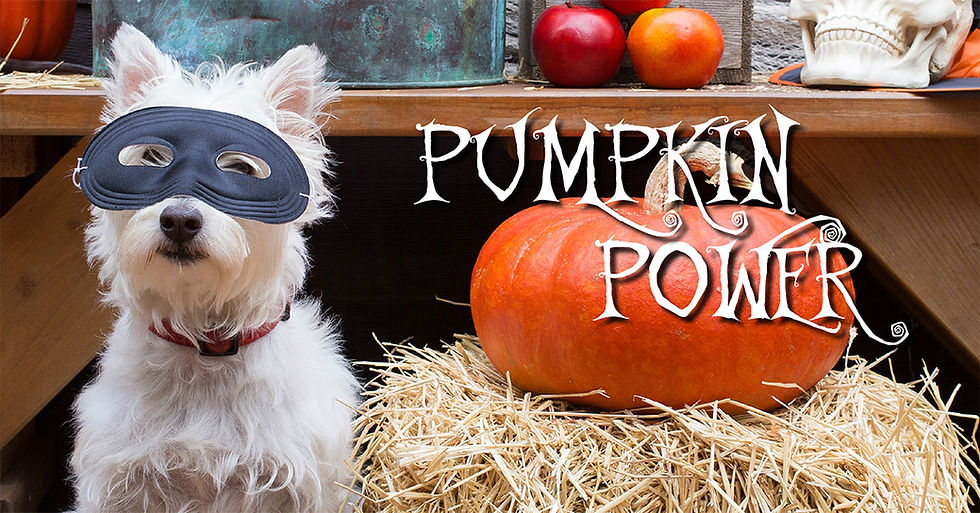Pumpkin Power
- Bark & Fitz
- Oct 2, 2018
- 2 min read
Updated: Jan 18, 2019

Pumpkins are so much more than a Halloween decoration! Loaded with vitamins and nutrients, these gourds have several health benefits when incorporated into your pet’s diet.
Pumpkin is especially high in fibre, allowing it to simultaneously help dogs with constipation and diarrhea alike. In dogs with constipation, the fibre helps to stimulate their digestive track and pass their stools. In cats, this also helps them pass hairballs rather than coughing them up. For dogs with diarrhea, the fibre helps absorb excess moisture to create firmer stools. If your dog or cat is overweight, the high amount of fibre can make your pet feel full and reduce the amount of kibble they want to eat. Since pumpkin is lower in calories than kibble, trading kibble for pumpkin helps reduce their calorie intake to a healthy level without leaving your pet feeling hungry. Another unexpected stool benefit is that pumpkin reportedly makes a dog’s stools taste bad, helping to discourage pets from eating their own stools. Pumpkin is also rich in beta-carotene, Vitamin C, potassium and iron.
Pumpkin seeds are full of linoleic acid. Linoleic acid is the essential fatty acid required by pets for a healthy skin and coat. Without it, dogs and cats may experience dryness, hair loss or skin irritations. It is recommended to feed pumpkin seeds that are roasted, unsalted and ground as whole, unroasted seeds can be a choking hazard.
There is such thing as too much of a good thing! Adding too much fibre to your pet’s diet can upset their digestive system, leading to gas, bloating, cramping and diarrhea. Pumpkins also contain a lot of Vitamin A, which is beneficial for vision health but can be toxic if more than the dietary requirement is fed to your pet.
It is also important to be picky about the pumpkin you give your pet. Throw away your Jack-O-Lantern; decorative pumpkins are often coated with unsafe glazes, and pumpkins that have begun to grow mold are not suitable to feed to your pet. Also avoid pumpkin found in the baking aisle at the grocery store as these pie fillings typically contain added sugars and sweeteners. Instead, opt for pumpkin supplements found at your local Bark & Fitz that are specifically made for pets and follow the feeding recommendations. Be sure to talk to your pet’s veterinarian to be sure that adding pumpkin to your pet’s diet is right for them.





Comments